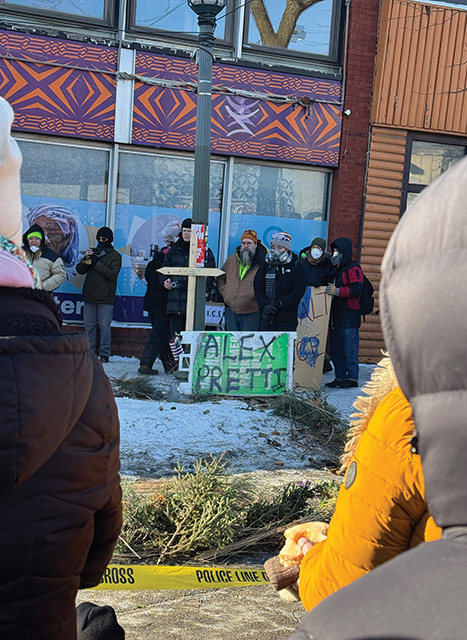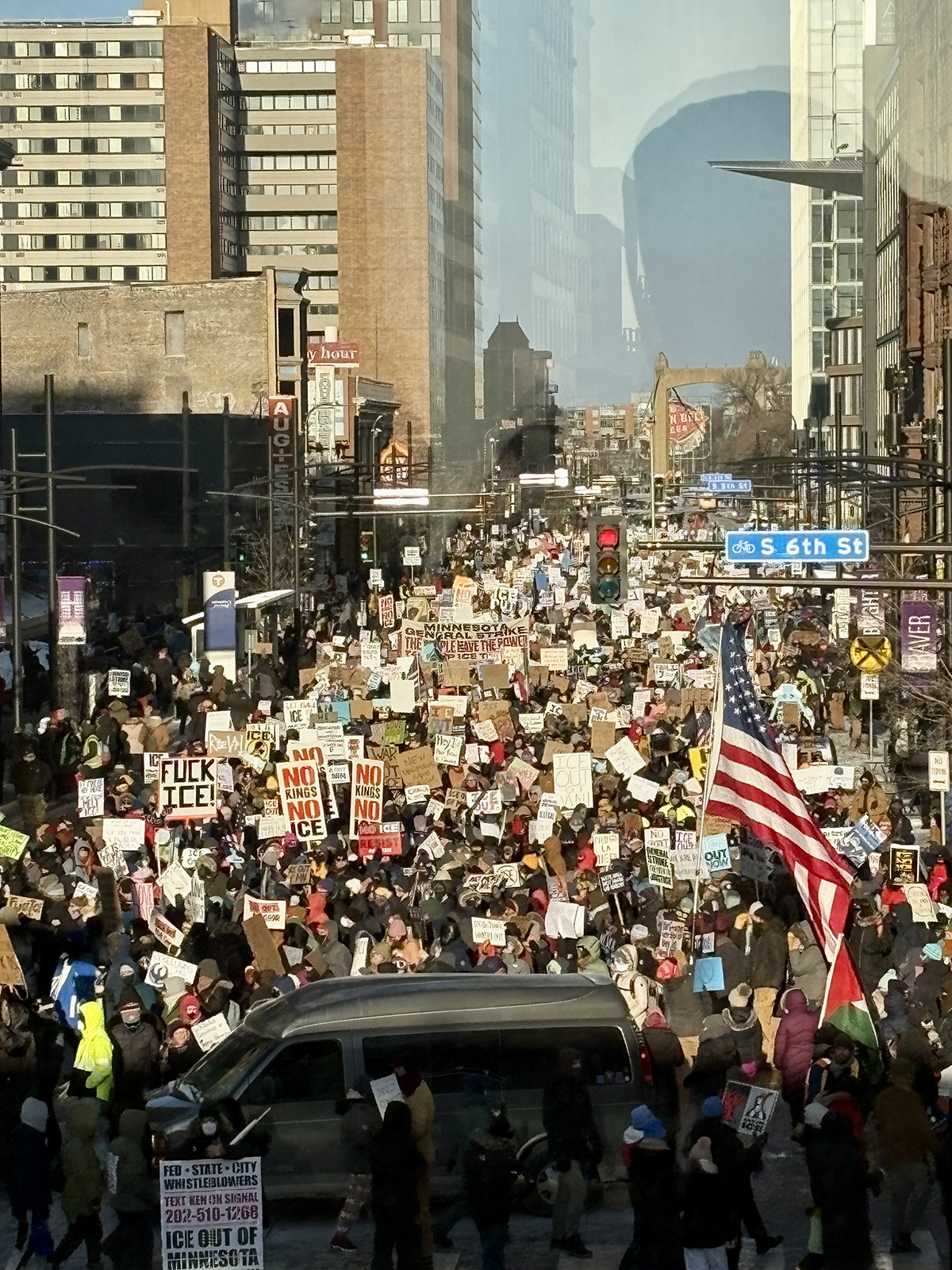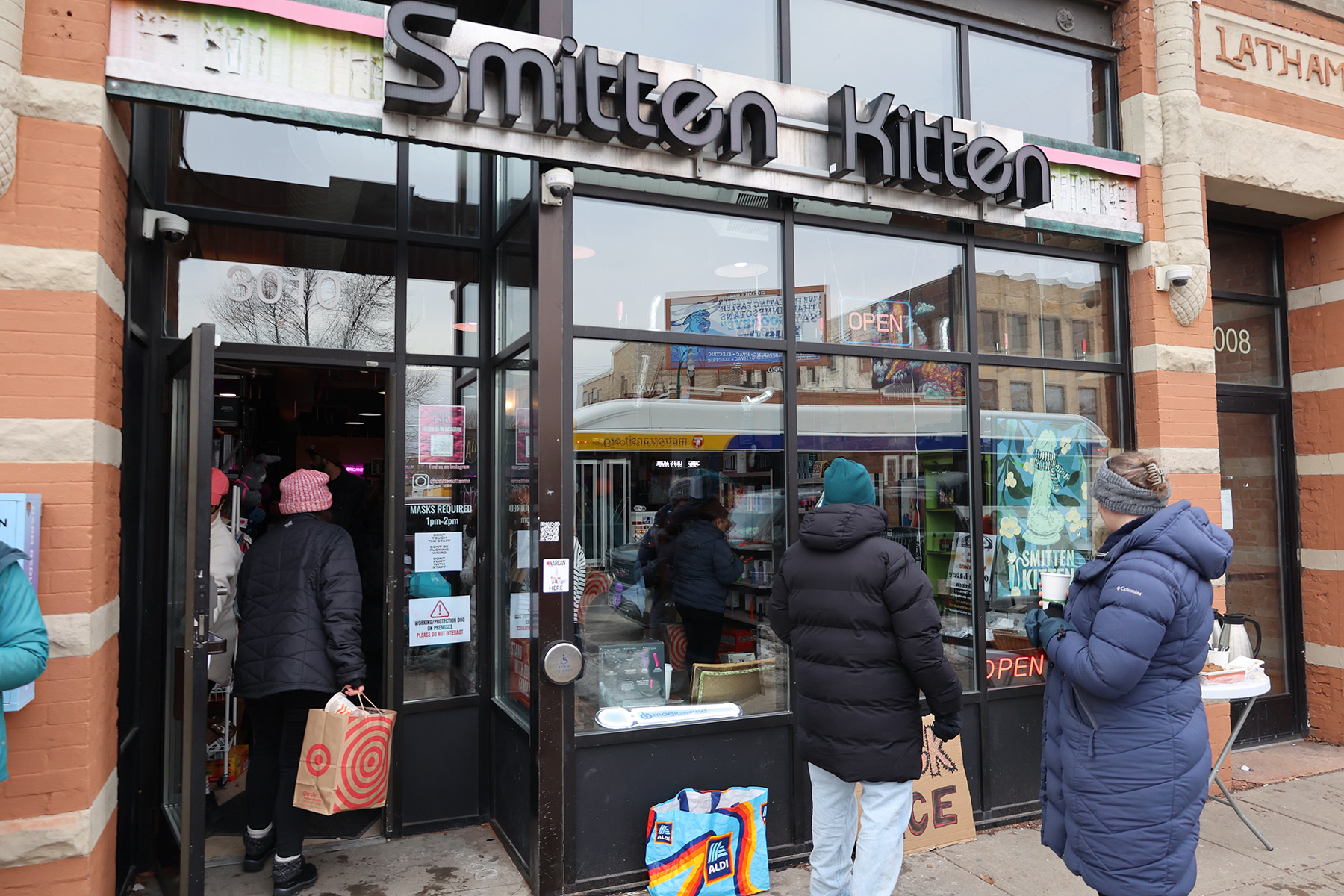Change and confidence: these are two words that are reasonable to associate with new Ward 7 Council Member-elect Katie Cashman. Change is her own word. When asked about the message voters sent in the 2023 Ward 7 election, Cashman says they voted for “change” and “something new.”
Confidence underlies that assessment. Viewed through the lens of conventional wisdom, it’s easy to regard that confidence as misplaced. In a ward with over 21,000 registered voters, she defeated Scott Graham by a razor-thin 177 votes — hardly the sort of margin that most armchair political observers would describe as a mandate for change.
But, on the other hand, only 37.5% of those 21,000 voters bothered to cast a ballot and, of those who did, Cashman won nine of the ward’s 12 precincts. And she did it by building a campaign from the ground up, campaigning in every precinct, but placing a special emphasis on registering first-time voters and turning out voters in some of the lowest turnout precincts in the ward — Loring Park, Downtown, Stevens Square — all precincts that skew younger and more renter-heavy. That’s 177 votes right there.
Added to that is the fact that her main competitor, Graham, was a longtime DFL insider, endorsed by Lisa Goodman, a respected Ward 7 Council Member for over 25 years who was very much retiring on her own terms rather than being shown the door. Based on that alone, conventional wisdom would say the race was Graham’s to lose. So, viewed through that lens, it’s not difficult to see why Cashman might feel some confidence that voters were sending a message seeking “change” and “something new.”
Then, in what was arguably her first newsworthy public statement after the election, Cashman took to Twitter on December 6 and fired off a series of posts lamenting the violence in Gaza, characterizing the Israeli response to the October 7 Hamas attack as “genocide,” and calling for “divestment from the State of Israel.”
In past years, the conventional wisdom would mark these statements as an act of overt political suicide (or, at the very least, malpractice), given the complexity of the issues and the ward’s large, vibrant Jewish community, which is also home to Temple Israel, the city’s first synagogue. But these are not past years, and Cashman says her position comes from a place of personal conviction. She seems confident that her stance will be vindicated in the fullness of time, as it was with the election results.
So who is Katie Cashman? I sat down with her last week to learn more. For starters, she’s a relative newcomer to the ward, relocating to the Twin Cities in 2020 after years abroad, and moving into her current apartment in Loring Heights in 2021. She lives there with her partner, Brandon (a woodworker and carpenter), and a rescue dog, and cultivates a backyard vegetable garden which she describes as her “happy place.”
Although new to the ward, Cashman has roots in the region. Born in Anoka, she moved around the metro area during her childhood, living in Plymouth before moving to Windom Park in Northeast Minneapolis with her dad and stepmother. From their home in Windom Park, she commuted to Benilde-St. Margaret’s for high school. After graduation, she attended McGill University in Montreal, where AP credits racked up in high school allowed her to graduate early, in 2016, studying geography and urban planning, with a minor in anthropology.
After getting her bachelor’s, she moved to Germany where she earned a master’s degree in urban management from the Technical University of Berlin in 2018. From there, she took a job with the United Nations, working as a sustainable urban development consultant for UN-Habitat. She was based in Nairobi, Kenya, where she worked on comprehensive planning and crafting urban legislation.
While there, she helped found the Mathare Slums Community Association (mathare.org), a nonprofit community center serving a sprawling slum in the city’s Eastlands. The organization is a collaboration between local and international partners, and lists Cashman as being instrumental in communications and fundraising. Mathare offers services ranging from yoga to boxing to sexual health support programs for young women, but primarily provides food for children and families.
As her employment with the UN ended in 2019, she founded 2811/Climate Action Academy (climateactionacademy.org), an organization focused on providing tools to educate teachers and materials to teach children about climate change and climate action, an effort boosted by a $1 million grant from the European Union.
Cashman moved back to the Twin Cities in 2020 due to the pandemic and decided to put down roots in the area following the George Floyd murder, which she says made her want to work in her own community. In 2021 she began a position with the Minnesota Center for Environmental Advocacy, serving as a project manager, assisting a team of lawyers and administrative staffers with a wide range of court cases.
Cashman says she didn’t get bitten by the politics bug until Goodman announced her retirement last January, but before then, in her role as a community volunteer, she had become frustrated with what she perceived as a disconnect between services the city said it was providing and services that were actually funded and could be easily accessed by residents and small businesses. In addition, she wants the city to be ambitious and forward-looking with regard to the climate and the city’s built environment, and views the council job as a high-impact position.
With encouragement from local leaders such as Anne Mavity, David Fey and Kate Knuth (and lots of young people, Cashman adds), she announced her candidacy on February 13, shortly before the DFL endorsing process got seriously underway.
Cashman views the Ward 7 DFL’s decision not to endorse anyone as a win, and says she likely would have dropped out had Graham prevailed. During the campaign, Cashman says she most enjoyed door-knocking and meeting new constituents, particularly in big apartment buildings, but also in less dense portions of the ward. More challenging was starting and running a campaign enterprise, navigating the election bureaucracy, and marshaling donors and volunteers. Cashman says she is “so proud” of her campaign, and that pride is evident when she speaks.
Where does Cashman stand on the issues?
Cashman lists her top three priorities as public safety, economic revitalization and housing affordability. Regarding public safety, she says she would have voted against the mayor’s proposed use of $15 million in one-time state funds for recruitment and retention bonuses but would find other ways to increase officer salaries. In addition, she views the city’s new consent decree as a valuable starting point, wants to emphasize alternative responders, and would like to help more young women enter law enforcement.
As to economic revitalization, Cashman says she is worried about property values and a potentially eroding tax base in downtown and Uptown but believes that continuing to add housing is key to downtown’s revival. She plans to work with Ward 10’s Aisha Chughtai to address the challenges facing Uptown.
On housing affordability, she reports that — among other things — she is opposed to rent control but wants to promote increased housing construction and inclusionary zoning, provide support to small landlords who own so-called “naturally occurring affordable housing,” and work to address the lengthy Section 8 wait list. As to encampments, Cashman says that they are not an adequate housing situation, but that there have to be viable alternatives for residents before there is a clearance, and there needs to be community input.
Regarding transit, she says she is overall supportive of the proposed Hennepin Avenue redesign but faults the city for failing to involve and support local businesses in the process and wants to see that corrected in future projects.
As to the much-discussed Minneapolis 2040 Plan, she is broadly supportive of its goals, but is open to amending the plan to address specific issues such as walkable corner stores. She says that the 2040 Plan has not significantly impacted neighborhoods in the Hill and Lake area, but it has allowed for increased density along corridors, which she says is necessary to keep housing affordable.
Regarding the pending 2040 environmental lawsuit, she feels some tension between her general support of the plan, but also not wanting to weaken the state’s environmental laws. That leads her towards supporting a legislative solution that aligns comprehensive planning with those laws, rather than exempting comprehensive planning altogether.
Also, as a matter of local concern, Cashman says she views neighborhood organizations as valuable partners and plans to work with them going forward. But, in contrast to Goodman, she says she plans to hold regular “office hours” for neighborhood leaders to meet with her, rather than scrupulously attending association meetings, as Goodman was locally famous for doing.
Asked about local role models for her new council position, Cashman cites Hennepin County Board Chair Irene Fernando, Sen. Scott Dibble, Rep. Frank Hornstein, Rep. Esther Agbaje, former Rep. Betty Folliard and former council member Robert Lilligren, among others. She also describes Lisa Goodman as a role model, in that she was an effective Council Member who “moved the needle on a lot of issues,” and provided excellent constituent services (something Cashman says she wishes to continue). Asked to contrast herself with Goodman, Cashman says she has a different temperament, more calm, more collaborative. Cashman describes herself as a good listener.
As for her call to divest from the State of Israel — a position anathema to Goodman (who is Jewish) — Cashman explains that it and her call for a ceasefire is rooted in anti-war activism from a young age. She says when she was in fourth grade, during the Iraq War, she had a button on her backpack saying, “Dump Bush, not bombs,” and one of her earliest political memories is of protesting with her uncle outside a Honeywell division that served as a military contractor. As to her specific call now, she reports that “so many” Jewish community members, along with people of other faiths and backgrounds, had reached out and asked her “to speak up on a way to reach peace,” and that her position is consistent with her overall anti-war stance and being concerned with the city’s place in the larger world.
While her position on a ceasefire and divestment appears confident and unwavering, when pressed she concedes that reasonable minds can differ on resolution of the Gaza conflict, and that it is “not an inherently municipal issue,” although she argues that it does impact our community.
All in all, she sets up a sharp contrast with her predecessor. Change is definitely in the air; Cashman already has a record of accomplishment, and she seems confident in betting big right out of the gate.






